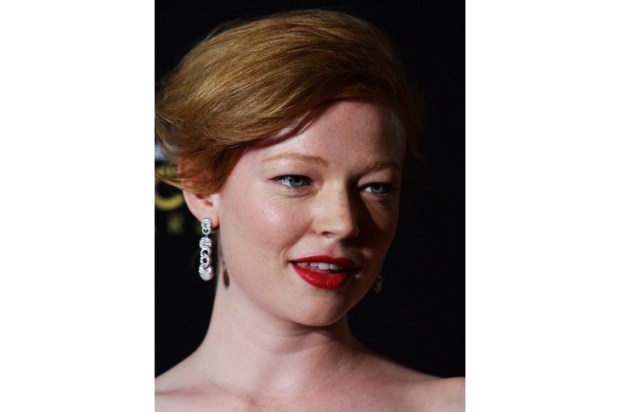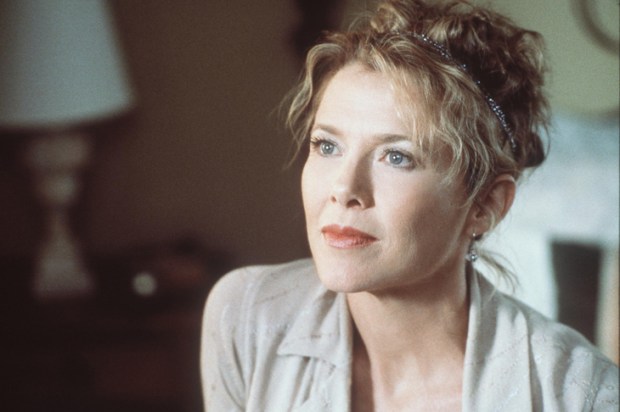What a relief it was to see Parallel Mothers the new film by Pedro Almodóvar. There was the tediousness and tawdriness of the Oscars but here in the midst of it all was a new film by the wonderful Spanish director who had seemed at the outset with films like Tie Me Up, Tie Me Down to be a wacky funster but then turned into a great humane master comparable in his coloration and tonal breadth to Douglas Sirk, a director who could encompass the world of rage and forgiveness in that line of masterpieces that includes All About My Mother and Bad Education.
Parallel Mothers is his latest masterpiece, with a performance of dazzling audacity and complexity by the talented Penelope Cruz, which runs the gamut of despair, desire and bewilderment with such finesse and such depth, such naked feeling and fury, that it’s enough to restore your faith in the magic and magisterium of the two-hour feature film as a vehicle for superb drama. And Cruz is, if not matched, then wonderfully complemented by the young actress Milena Smit who makes the journey from a desolated innocence to an intense unknowing erotic love then rejection of this and then the journey back to the families we make for ourselves.
They are the parallel mothers. The beautiful mature woman at the edge of middle-age who thinks she should have the baby to the forensic anthropologist (he exhumes the bones of those massacred in the Spanish Civil War) and then the teen who was effectively gang raped by a group of young men. They share a room in the maternity hospital, they share the pain and travail and labour and they each have their babies. It would be wrong to give away the plot of what then develops because Almodóvar is as effortless in the way he flips his narrative as he is in his command of those mid-shots so rich in their traditionalism and love of faces in the way they provide something like a front stall seat to a drama that is intimately dialectical.
Parallel Mothers is on Apple TV and can be rented for a few dollars and will soon stream for nothing. The use of the screen, the command of colour and light and the effortless self-effacing mastery of the shots will make your living room feel like the cinema you have forsaken. But this is a motherhood film and it pivots round the idea of who the real mother is and what motherhood can mean in a context of a single child left alive and how the enigmas and unlikelihoods of this predicament can be negotiated with any honesty and purity of heart.
The young girl who thinks she’s lost her child comes to work for the older woman and there is an extraordinary swooping pas de deux of falling in love between them where the mute and at first shy eroticism becomes a kind of engulfing expression of what is essentially a motherly love on Cruz’s part for Smit, a child almost young enough to be her daughter even though they’ve come together as mothers, as the bearers of babies.
The enigma as well as the dramatic probability of how Parallel Mothers develops is brilliantly achieved.
In the background we have the girl’s mother Aitana Sánchez-Gijón (posh, apolitical, her marriage annulled by the Church) who dumps her daughter despite her single pregnancy to go off on a tour –she’s an actress getting her first big break in middle-age – to do different city seasons before the Madrid opening of Lorca’s Doña Rosita the Spinster.
And we’re reminded of Lorca in any case by the bright sharply highlighted images of the photographs of Cruz’s great-grandparents’ generation and what they were subjected to by their political enemies.
This is why the distinguished-looking gent, Israel Elejalde, having an affair with Cruz at the beginning, is a forensic anthropologist. He wants to assemble old bones and to reconfigure the murders they represent. This aspect of Parallel Mothers has a diagrammatic brilliance and clarity of outline ––it tallies with Cruz as a photographer thinking a skull as everybody’s Hamlet motif is a bit slick–– but it serves as something like an allegorical background to Parallel Mothers rather than a fully embodied vision where myth is inseparable from its enactment as plot. On the other hand, the moment at the end of Almodóvar’s film where the re-assembled bones of the executed dead suddenly and apparitionally turn into the fresh corpses of the Civil War period has its own black magic, you can surrender or hold to your disbelief but it won’t change the buoyancy and the complex poignancy, at once slippery and thundering, of how a girl at the edge of adulthood and a woman at that prime where ripeness is all but also all that is left rub up against each other in the name of, in the face of, the most sacred of our sacred cows: motherhood.
Parallel Mothers is a remarkable film because it gleams with Almodóvar’s mastery of the centrality of a filmic idiom all but unknown to Gen Z. At one point Cruz explains to Smit that she was named Janis after Janis Joplin and the now beautiful short fair-haired girl who has known the heartbreak of motherhood and who is also at the edge of falling in love with Cruz as a mother figure says, ‘Who’s Janis Joplin?’ The soundtrack, needless to say, is mighty with the voice of Joplin singing ‘Summertime’, a woman who died so young and sang too about getting it while you can.
But Parallel Mothers is a breathtaking film. It has a graphically powerful story and Almodóvar handles every twist and turn with a Shakespearean defiance of improbability. Yes, and it has Penelope Cruz acting with a tremendous panache and power and subtlety. If you want to see greatness in a contemporary actor, the sheer ability to reveal truth of feeling and the vast tumult of the heart, see this very grand, supremely watchable film by the old master Almodóvar.
Got something to add? Join the discussion and comment below.
Get 10 issues for just $10
Subscribe to The Spectator Australia today for the next 10 magazine issues, plus full online access, for just $10.
You might disagree with half of it, but you’ll enjoy reading all of it. Try your first month for free, then just $2 a week for the remainder of your first year.














Comments
Don't miss out
Join the conversation with other Spectator Australia readers. Subscribe to leave a comment.
SUBSCRIBEAlready a subscriber? Log in